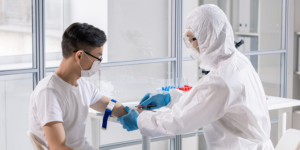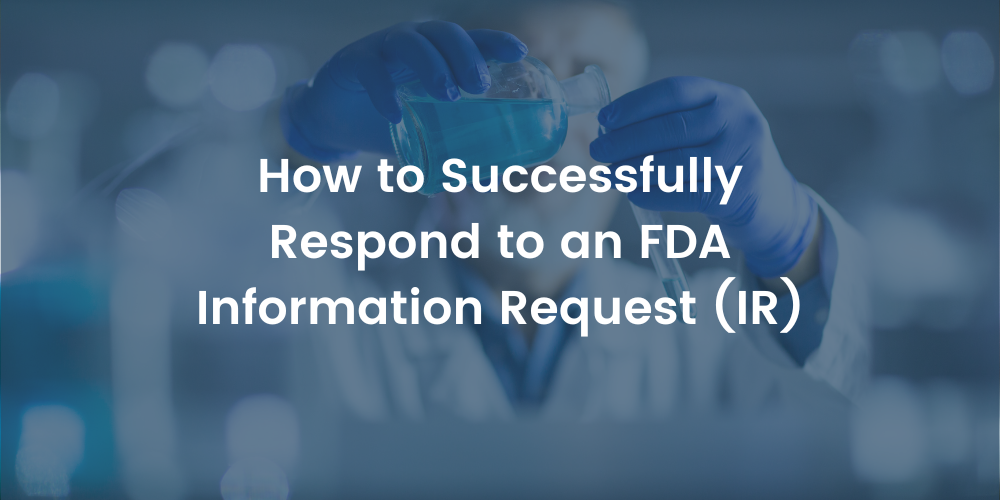AI vs. Humans: Can Artificial Intelligence Outsmart Cold Chain Experts?
10 Common Misconceptions of Cold Chain Validation, as Explained by AI, commentary by Gary...
read Details

Clinical trials around the world are being disrupted by the COVID-19 pandemic, leaving sponsors with no choice sometimes but to suspend some trials and delay others. This is creating a huge backlog in ongoing trials resulting in a rush to regulatory approval once the restrictions imposed by the pandemic are lifted. Are you prepared for the rebound and the long-term impacts on the global supply chain affecting your clinical trials?
By late March, Eli Lilly and Bristol Myers Squibb had delayed the start of new clinical trials to free up physicians to treat COVID-19 patients. Since then, Lilly, BMS, and many othersi – including GlaxoSmithKline, Janssen, and Sanofi – have temporarily suspended clinical trials because of the pandemic.
ClinicalTrials.gov shows 615 industry-funded studies currently are suspended, but there are many more funded by governments and academia. Overall, more than 1,000 clinical trials have been disrupted, according to GlobalData’s COVID-19 Dashboard on the Pharma Intelligence Center.
Most trials aren’t related to the SARS-CoV-2 virus and, therefore, take a lower priority. The FDAii continues to update guidance on strategies to conduct clinical trials during the COVID-19 crisis to help those companies cope with trials under pandemic conditions. The most recent guidance was added to its comprehensive listiii on May 12.
The pandemic has introduced concerns that many ongoing trials cannot overcome immediately. For example, some sponsors are unable to activate trial sites because of countries’ strict lock-down measures. Other trial sites are unavailable because their resources are being used for COVID-19 trials. Physicians have been redeployed, too. At Yale Cancer Center, for example, even oncologists were diverted to the intensive care unit, according to Wirediv magazine.
Supply chain stresses have been created by state stay-at-home orders that made it difficult-to-impossible for companies and their laboratories to receive shipments. In a May conference call, Luminex noted that $2 million worth of its flow cytometry products used for developing diagnostics and drugs couldn’t be delivered to scientific labs because no one was there to receive them.
There are indications that clinical trials are restarting as regions begin to loosen restrictions.
Concurrent planning and rapid response to challenges will determine who the winners are and which much needed pharmaceutical products will emerge first on the market.
The imperative of a new supply chain cold chain model for clinical trials is key to success. Sponsors must embrace the need for agility and collaboration with not only local regulatory agencies but now local health authorities to comply with each region’s unique COVID-19 safety regulations.
1. Modify your Supply Chain Protocol to include contingencies for emergencies.
Conduct periodic risk assessments to identify the vulnerabilities in your supply chain and develop plans to mitigate the risks associated with the identified vulnerabilities and integrate contingencies for emergencies. This step will enable sponsors to strengthen their supply chain and lower the risk for drug supply disruptions for clinical trials.v
2. Amend Risk Assessments to account for the impact of COVID-19 measures.
Sponsors must consider both the risk of COVID-19 potentially affecting study participants directly in case of infection, and whether COVID-19 related measures such as social distancing or availability of personal protection gear will affect trial conduct. Conducting comprehensive ongoing risk assessments during clinical trials to monitor any COVID-19 related adjustments are recommended.
3. Plan for Clinical Trial Protocol deviations and include data collection standards into your protocol.
Regulators globally have promised more flexibility than in the past. For example, new FDA guidance specifies that changes to a protocol or investigational plan meant “to minimize or eliminate immediate hazards or to protect the life and well-being of research participants (e.g., to limit exposure to COVID-19)” may be implemented without IRB approval or before filing an IND/IDE amendment—but are required to be reported afterwards.vi”
4. Track changes in regulations and monitor guidelines in all regions of your clinical trials.
Every locality has unique and changing COVID-19 guidelines. Sponsors will need to track for changes by local health authorities and regulators in every locality where they are conducting clinical trials. Regions vary in level of travel restrictions, social distancing, lockdown, and quarantine rules, as well as testing and contact tracing.
Our team of pharmaceutical cold chain clinical trial operations experts stay on top of regulation changes and regional health authority guidelines to ensure the safety of your team and the patients involved. We offer end-to-end clinical trial cold chain monitoring, site compliance, safety review, end-user training, and project management. Our goal is to establish a collaborative relationship with our clients to deliver fast, successful, and scientifically sound supply chain cold chain solutions for clinical trials globally.
When you’re ready to brave this new, ever-changing environment, contact us. Modality Solutions is here to help.
References
i https://www.biopharmadive.com/news/coronavirus-clinical-trial-disruption-biotech-pharma/574609/
ii https://www.fda.gov/drugs/coronavirus-covid-19-drugs/clinical-trial-conduct-during-covid-19-pandemic
iii https://www.fda.gov/emergency-preparedness-and-response/coronavirus-disease-2019-covid-19/covid-19-related-guidance-documents-industry-fda-staff-and-other-stakeholders
iv https://www.wired.com/story/covid-19-stalls-clinical-trials-for-everything-but-covid-19/
v https://www.fda.gov/news-events/press-announcements/coronavirus-covid-19-supply-chain-update
vi https://www.fda.gov/media/136238/downloadFDA Guidance on Conduct of Clinical Trials of Medical Products during COVID-19 Public Health Emergency Guidance for Industry, Investigators, and Institutional Review Boards March 2020 Updated on May 14, 2020
10 Common Misconceptions of Cold Chain Validation, as Explained by AI, commentary by Gary...
read Details
When it comes to ensuring the integrity of temperature-sensitive products during transit, choosing the...
read Details
Getting your vaccine or therapeutic approved by the FDA is a significant accomplishment. But...
read Details